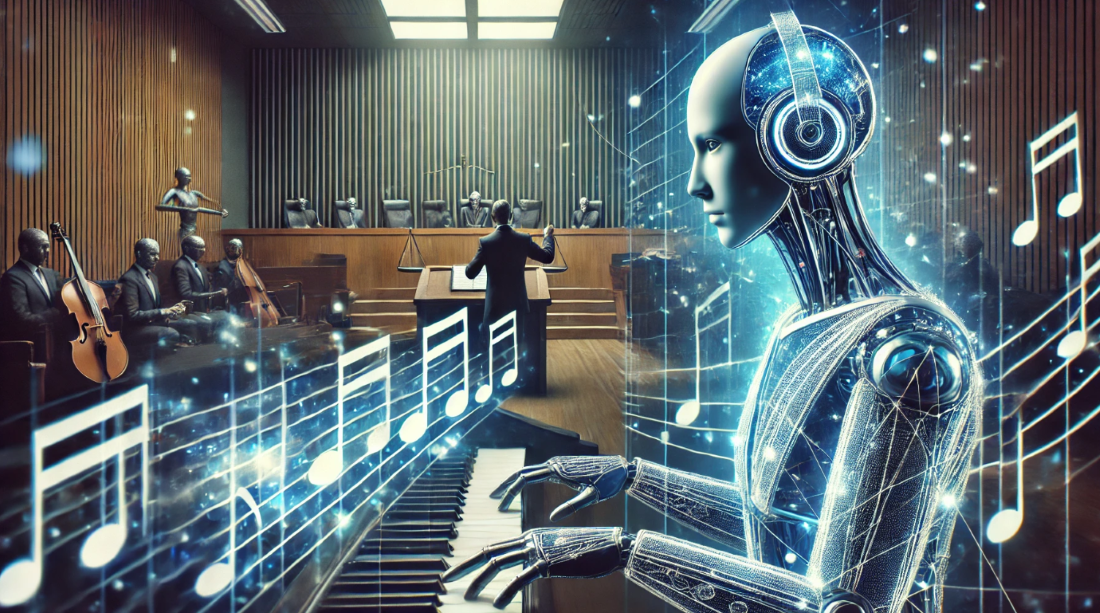Suno AI sued again, this time by GEMA
Image credit: AI generated.
Another lawsuit filed against Suno, showing that its AI music outputs clearly infringe on copyrights from major songs.
Who are GEMA and Suno Inc.?
GEMA represents over 95,000 composers, lyricists, and music publishers in Germany and millions of rightsholders globally. Its mission is to ensure fair remuneration for creators.
Suno Inc. specialises in music generation tools that allow users to create playable audio content from simple prompts. While innovative, Suno’s practices have drawn controversy.
The lawsuit

On 21 January 2025, GEMA filed a lawsuit against Suno Inc. accusing the company of training its AI on protected recordings from GEMA’s repertoire. Not only does Suno use these works to train its AI without consent, but it also profits from its premium service while depriving creators of fair compensation.
GEMA was able to document outputs that clearly infringe copyrights in terms of melody, harmony, and rhythm. These include iconic songs such as Forever Young by Alphaville, Mambo No. 5 by Lou Bega, Daddy Cool by Frank Darian, amongst others.
GEMA has published AI-generated outputs of Suno’s Daddy Cool and Forever Young, demonstrating the similarities in both the audio and their scores.
A history of legal battles
This isn’t the first time that Suno Inc. has faced legal challenges. In June 2024, major record companies sued Suno and fellow AI firm Udio, alleging they trained their systems on copyrighted recordings without permission- an accusation Suno has all but admitted to.
GEMA itself has also been proactive in addressing AI-related copyright issues. Just two months ago, it filed a lawsuit against OpenAI, claiming that its chatbot was trained on and reproduced unlicensed lyrics from GEMA’s members when users entered simple prompts. According to Dr. Kai Welp, GEMA’s General Counsel, these actions are part of a broader effort to ensure “fair treatment of authors and their remuneration” in the face of AI advancements.
Towards a resolution
At the heart of the conflict is the lack of licensing agreements and fair compensation for creators whose works are used to train AI models. However, collaboration rather than confrontation could be the key to progress.
“GEMA is endeavouring to find solutions in partnership with AI companies. But this will not work without adhering to the necessary basic rules of fair cooperation and, above all, it will not work without the acquisition of licences”
Dr. Tobias Holzmüller, CEO of GEMA.
For music companies and rightsholders the message is clear: transparency, fairness, respect, and remuneration lie at the heart of the solution to AI innovation.
